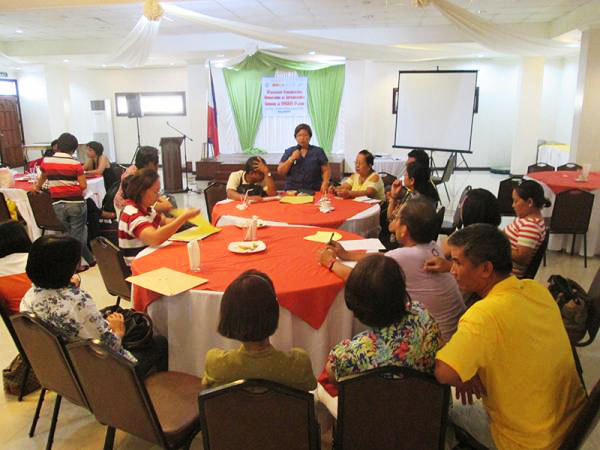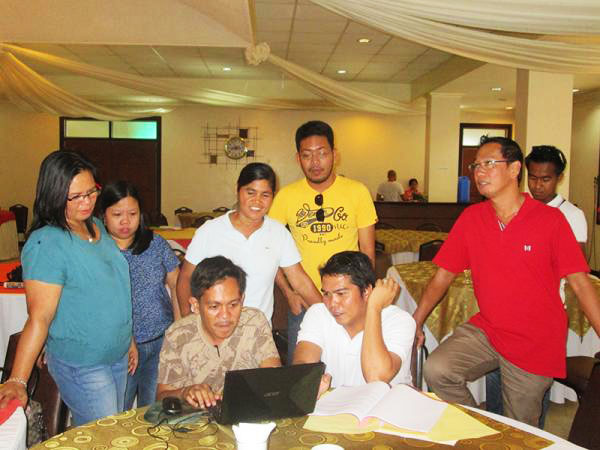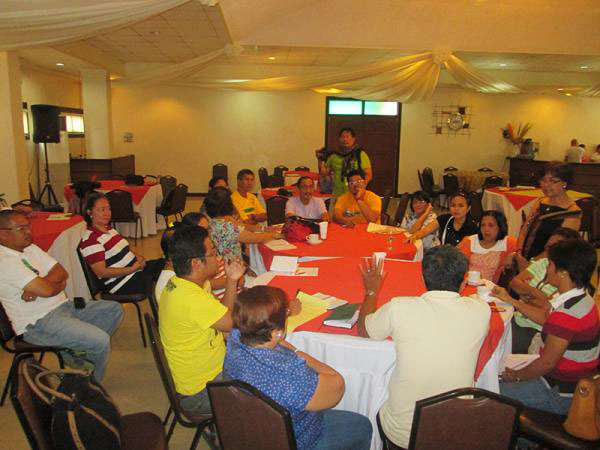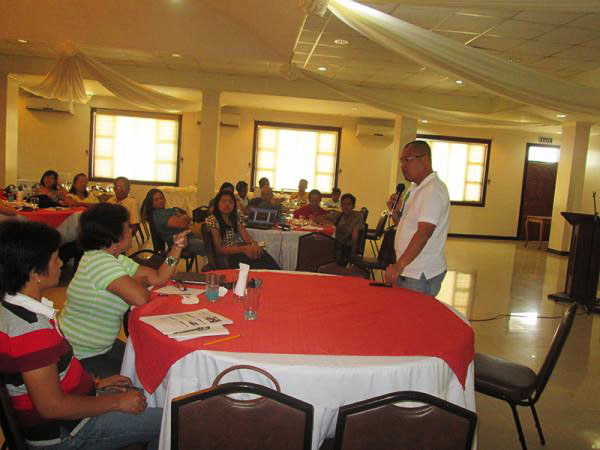Albay disaster risk reduction plans made gender-responsive

Albay Province — Considered as one of the country’s models for Disaster Risk Reduction and Management (DRRM), the DRRM program will once again raise the bar for programs of its kind. Members of the Technical Working Group of the Provincial Gender and Development (GAD) Office conducted a technical workshop formulating guidelines in integrating gender issues and concerns in DRRM plans.
The DRRM Program was developed by the Provincial Government of Albay, with the leadership of Albay Governor Joey Sarte Salceda. Albay Province is a local project site of the Philippine Commission on Women-AECID Magna Carta of Women Project. The AECID MCW Project extends capacity development, technical and funding support to pilot local government units that will craft and implement gender-responsive policies, plans, programs and activities for women’s economic empowerment and women’s social rights.

Cynthia Samalea, head of the GAD Focal Point System (GFPS) Technical Working Group (TWG), said the group “aims to prepare a definite blueprint for the DRRM program and mainstream gender perspectives in its DRRM plans.”
“Mainstreaming gender in DRRM enables the provincial local government to create steps that will ensure integration and institutionalization of gender perspectives in DRRM plans,” Tet Triunfante, Local Area Coordinator for the PCW-Magna Carta of Women Project in Albay added.
Heads and representatives of national and local offices, including delegates from the Municipality of Polangui, mutually defined gender roles in various phases of disaster mitigation. They proposed a package of gender-responsive guidelines for integration in updated DRRM plans of Albay. These include maintenance of gender-friendly evacuation centers, distribution of health kits for women, and sustainable livelihood programs.



